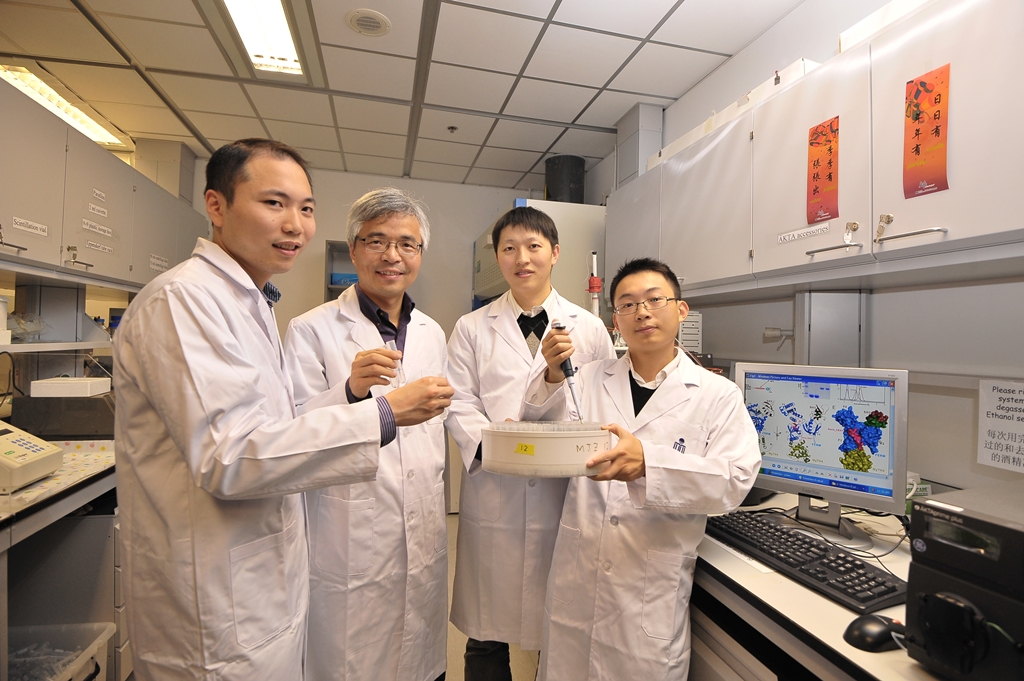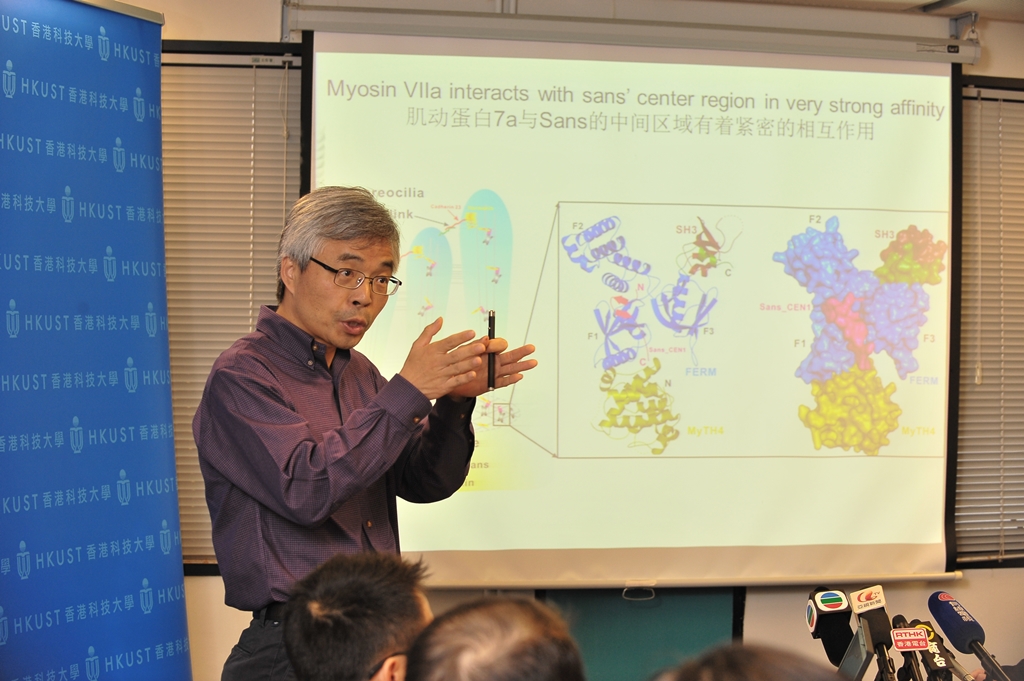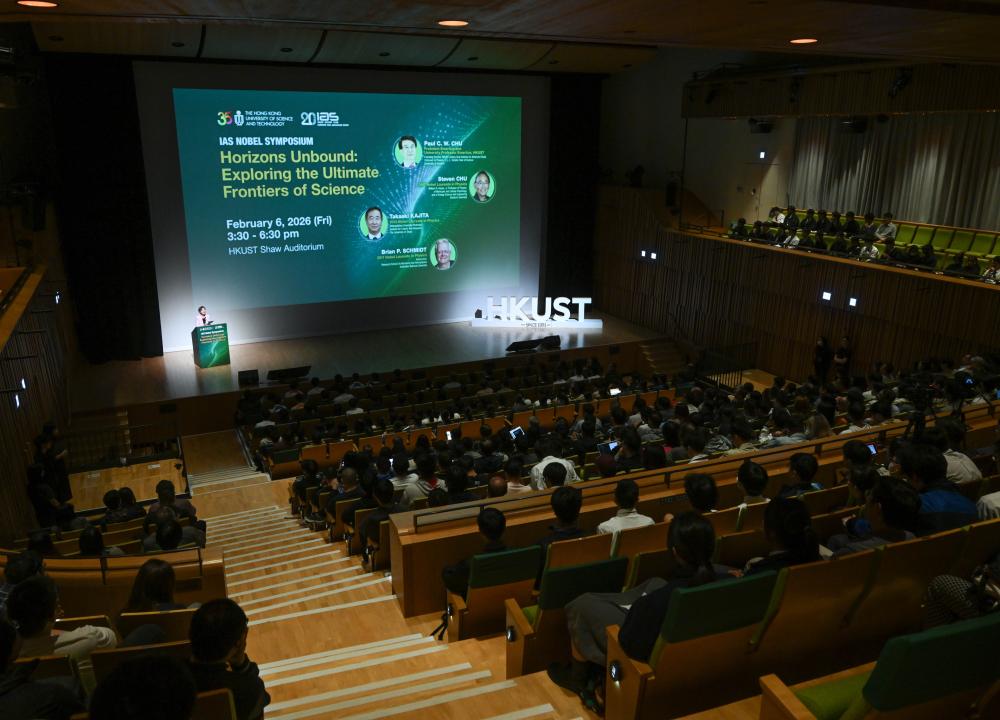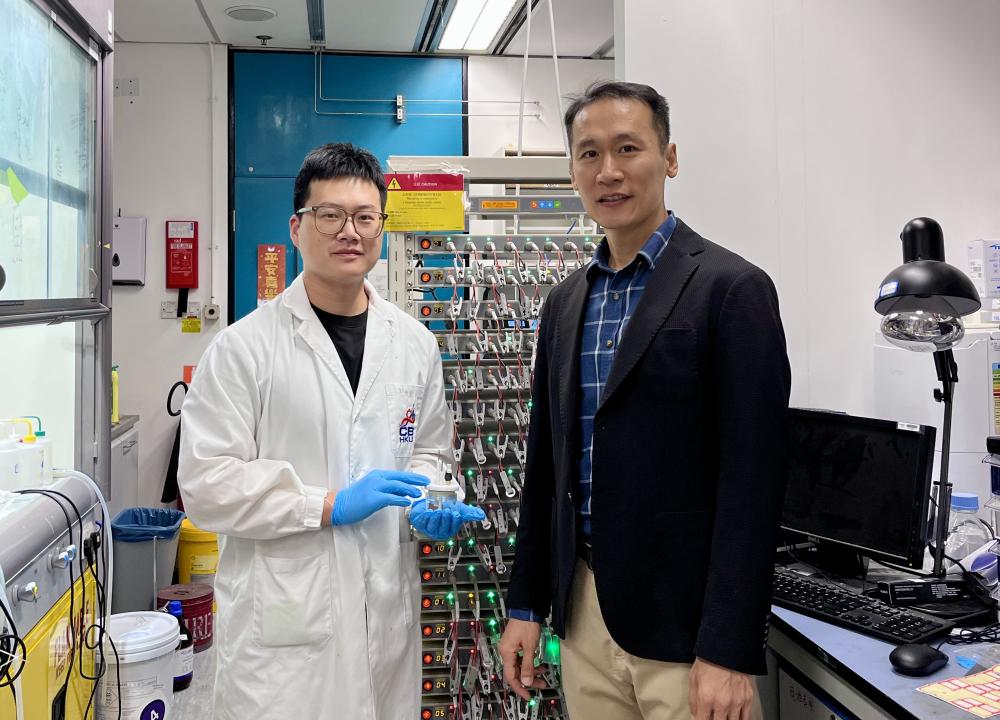HKUST Researchers Achieve Breakthrough in Unveiling the Mechanism through which Genetic Mutations of a Motor Protein Lead to Hereditary Deaf-and-Blindness
The Hong Kong University of Science and Technology (HKUST) Chair Professor Mingjie Zhang and his team of researchers in the Division of Life Science have achieved significant breakthrough in explaining how genetic mutations of Motor Protein Myosin VIIa leads to hereditary deaf-and-blindness.
This is excellent news for the medical profession in developing preventive and remedial measures against hereditary deaf-and-blindness.
According to medical statistics, hearing deficit is a common occurrence among new born babies - for every 1,000 there are several born with this problem. Among those who are deaf or hearing-impaired, 3% to 6% suffer from the Usher syndrome - a genetic disorder which can cause different levels of hearing and vision loss or impairment at various stages of the patient's life.
The research paper on this breakthrough was published in top scientific journal Science today.
Myosin VIIa is one of the mini-protein machines known as molecular motors that transport various cargoes in living cells. Myosin VIIa is particularly important for proper development and normal function of hair cells in human ears as well as human eyes. Mutations of myosin VIIa are known to be responsible for about 50% of human patients with impaired hearings and/or blindness (a common devastating human disease called Usher syndrome that mainly affects new born babies and young children).
More than 160 different myosin VIIa human deafness-causing mutations are known through genetic screenings. Additionally, mutations of several myosin VIIa interacting proteins also cause human deaf-and-blindness. Until now, little is known about the how and why mutations in myosin VIIa and its binding proteins cause human deaf-and-blindness.
Prof Zhang's team, comprising graduate students Lin Wu and Lifeng Pan and postdoctoral fellow Zhiyi Wei made a ground-breaking discovery in elucidating the disease-causing mechanism of the devastating Usher syndrome.
Using a combination of nuclear magnetic resonance and X-ray crystallography techniques, they determined the structure myosin VIIa in complex with Sans, an adaptor protein linking the myosin motor with the rest of the Usher proteins. Their work explains how myosin VIIa transports various cargo proteins in various human cells as well as maintains stereocilia structures in hair cells of human ears.
Importantly, the structure of the myosin VIIa /Sans complex, together with a series of their related work, provides clear mechanistic explanations to many dozens of disease-causing mutations in the myosin cargo binding tail. Their discovery also provides clear explanations for many of the disease causing, missense mutations found in myosin 15, which is another myosin motor frequently mutated in non-syndromic deafness patients.
The myosin VIIa /Sans complex structure is expected to be highly valuable for interpreting previously unknown mutations of myosin VIIa and myosin 15 identified in patients with hearing impairments. Knowledge derived from these studies helps to improve genetic counseling for deaf-and-blindness patients and their family members.
Finally, Prof Zhang's discoveries on myosin VIIa and other Usher syndrome proteins provide a scientific foundation for future gene therapy of hereditary deafness caused by mutations in myosin VIIa, 15 and Sans.
For media enquiries, please feel free to contact :
Ross Lai
Tel: 2358 6306 / 9103 2928
Email: rosslai@ust.hk















